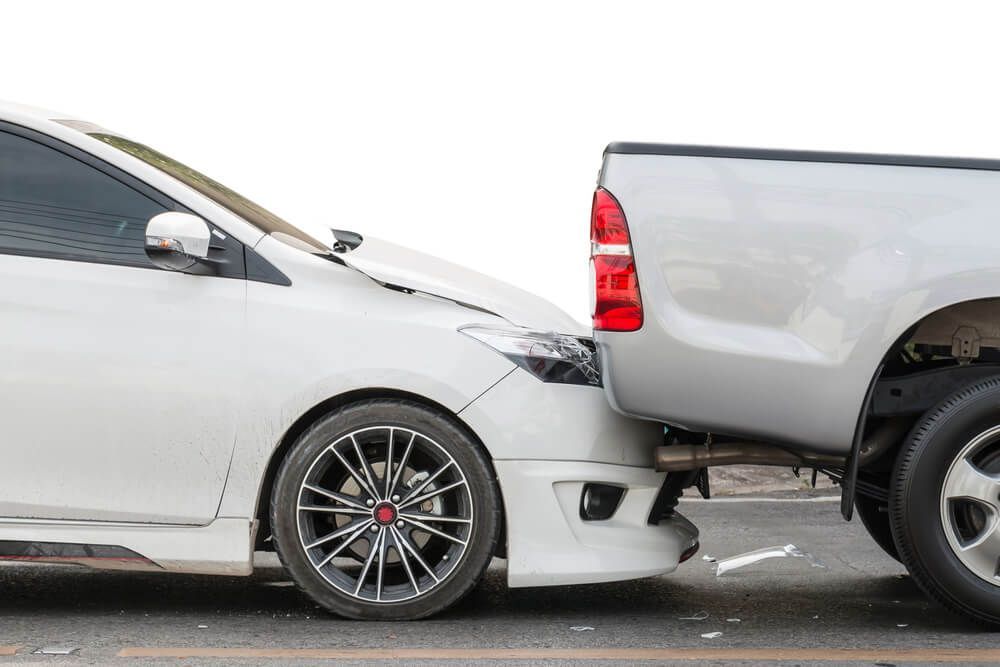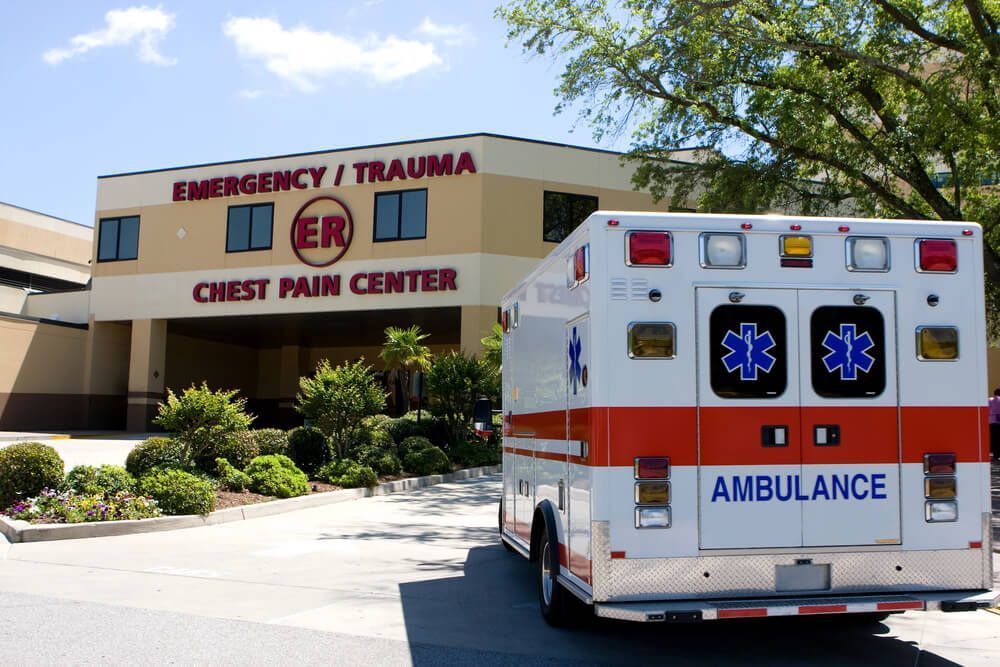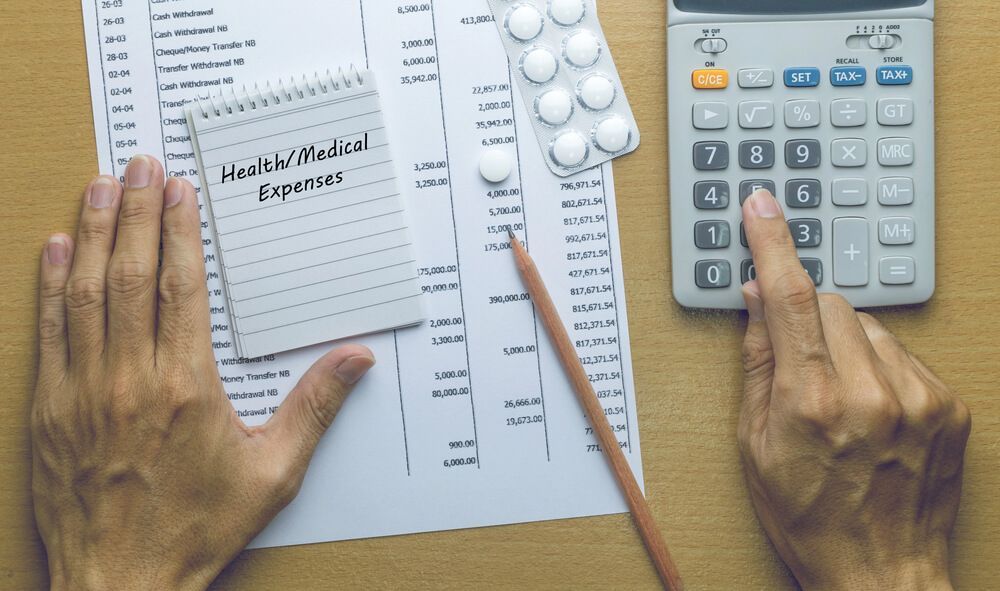What To Do If You're Involved in a Rollover Accident
Recent Blog Posts
What To Do If You're Involved in a Rollover Accident
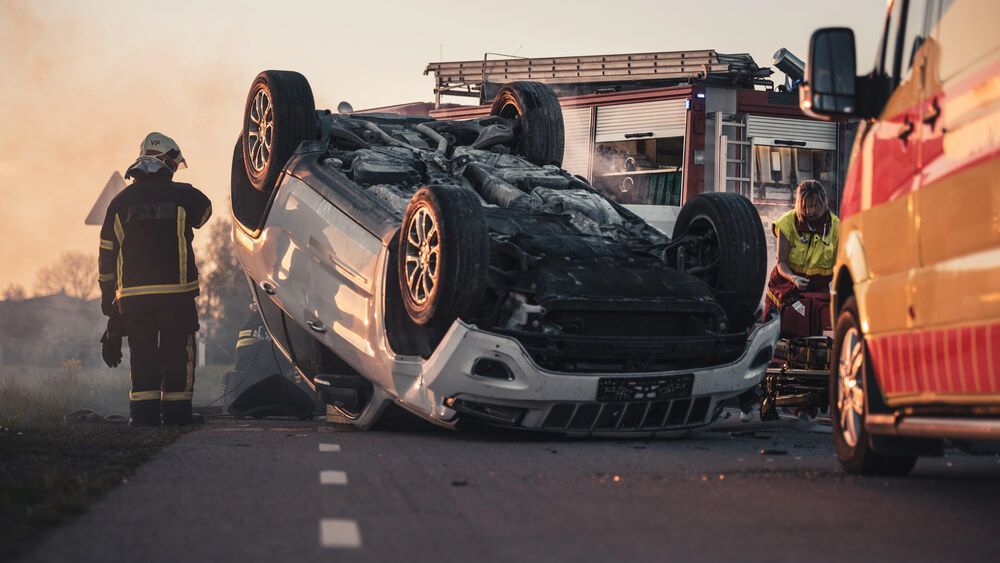
Rollover crashes are among the most serious types of car accidents. They often cause significant injuries, raise complicated insurance questions and leave vehicles damaged beyond repair. Whether you’re preparing yourself with knowledge ahead of time or trying to figure out the next steps after a crash in Arizona, knowing what to do after a rollover accident is important.
What Is a Rollover Accident?
A rollover accident happens when a vehicle tips onto its side or roof, either partially or completely. These types of car accidents are especially dangerous because they often involve multiple impacts: the initial crash, the rollover itself and sometimes additional collisions with other vehicles or objects. Rollovers make up a relatively small percentage of all crashes, but they account for a high number of serious injuries and fatalities.
What Steps Should You Take Following a Rollover Accident?

Rollover crashes are chaotic and high‑adrenaline events, but taking the right actions immediately after a rollover can protect your health, preserve valuable evidence and improve your chances of recovering fair compensation. From checking for injuries to contacting a rollover accident attorney, each step plays an important role in protecting both your safety and your legal rights.
1. Check for Injuries
Checking yourself and your passengers for injuries should always be the first step after a rollover accident. Quickly scan for bleeding, dizziness or disorientation and avoid moving if you suspect a neck or back injury. Encourage injured passengers to stay calm and still until help arrives. Even small injuries should be noted, as they often develop into more serious problems later.
From a legal standpoint, identifying injuries immediately helps establish a clear connection between the crash and your condition. If you wait to seek care, insurers may argue your injuries were unrelated or caused by something else, making recovery more difficult.
2. Call Emergency Services Immediately
Calling 911 right away ensures medical and law enforcement professionals arrive to secure the scene and provide care. Dispatchers will need your location, the number of people involved and whether hazards like fuel leaks or blocked lanes are present. Emergency responders also create official records of the accident, which later serve as crucial evidence for insurance claims.
In Arizona, drivers are legally required to report accidents involving injury, death, or property damage of $2,000 or more. Failing to report as required can result in penalties.
If you fail to call, you miss the chance to have an objective police report that documents what happened. Insurers often use the absence of timely reports to question how serious the accident was or to challenge whether your injuries came from the crash.
3. Avoid Leaving the Vehicle Until It’s Safe
Remaining inside the vehicle until you know it is safe helps prevent further injury. Rollovers can leave cars in unstable positions or in the middle of active traffic. Climbing out too soon risks being hit by other vehicles or worsening your injuries. Unless there is an immediate threat, like smoke or fire, it is safer to wait for first responders or bystanders to assist.
Leaving too quickly can also disturb evidence, such as the final vehicle position or debris. This can hurt accident reconstruction efforts and give insurers reason to argue you acted recklessly afterward.
4. Turn Off the Engine To Prevent Fire Hazards
Turning off your engine after a rollover minimizes the risk of fire or explosion. These accidents often damage fuel lines, tanks and electrical systems, creating dangerous conditions. An idling engine increases the chance of sparks that could ignite leaking gas or fluids. Shutting the engine down is a simple but important step that shows you acted responsibly to reduce danger.
If a fire starts because the engine was left on, insurers may argue that you contributed to the damage. Taking this precaution protects your safety and strengthens your case by showing you took reasonable steps to limit further harm.
5. Provide Clear and Accurate Information To First Responders
Providing clear and accurate information to police and paramedics ensures that the official report reflects the facts. Stick to what you know, like your speed, lane, direction of travel and the sequence of events as you recall them. Avoid guessing about details you are unsure of, such as exact distances or speeds. Consistency matters because insurers carefully examine reports for gaps or contradictions.
If your statements are vague or conflicting, the insurer may use that to challenge your credibility. Accurate details make the report more reliable, which strengthens your case and makes it harder for the insurance company to dispute later.
6. Do Not Admit Fault at the Scene
Avoid admitting fault or apologizing after a rollover accident, even if you feel responsible. Liability in these accidents is often complicated and may involve road design, another driver’s behavior or mechanical issues. Even a polite “I’m sorry” can be interpreted as an admission and used against you. Instead, calmly exchange information with other parties and let the police and investigators sort out what happened.
Arizona follows a pure comparative negligence system, which means you can still recover compensation even if you hold some of the fault. However, your recovery will be reduced by your percentage of fault.
From a claims standpoint, premature admissions can reduce your potential compensation or unfairly shift blame onto you. Remaining factual and withholding judgment helps ensure liability is properly determined through evidence, not offhand comments.
7. Document the Scene and Gather Evidence
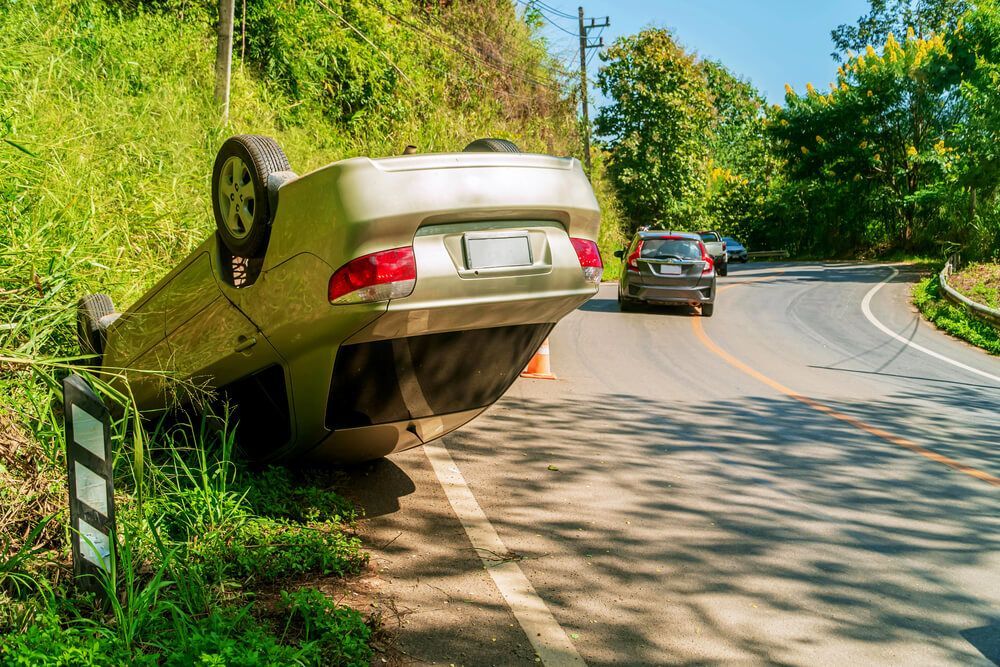
Taking time to document the scene is essential for building a strong case. Be sure to capture:
- Photos of vehicle damage and the overall scene.
- Images of road conditions, including any hazards or obstacles.
- Skid marks, debris and other physical evidence at the scene.
- Visible injuries, including cuts, bruises or swelling.
- The weather, lighting and traffic conditions at the time of the accident.
- Damage to property, such as guardrails, signs or fences.
- Contact information from witnesses, along with any statements they provide.
Accident evidence can disappear quickly, especially in rollover cases where cars may be towed immediately. Gathering this evidence ensures your side of the story is well-supported later on.
8. Seek Medical Attention, Even If You Feel Fine
Getting medical attention immediately is critical, even if you don’t feel hurt. Adrenaline often masks pain, and injuries like concussions, internal bleeding or spinal damage may not show up for hours or days. A doctor can spot issues early and document them in your medical record. This link between the accident and your injuries is vital for your claim.
If you delay, the insurance company may argue that your injuries came from another cause or were not serious enough to require care. Prompt medical evaluation not only protects your health but also strengthens your right to fair compensation.
9. Contact Your Insurance Company To Report the Incident
Arizona law requires drivers to carry minimum liability insurance, and most policies require prompt reporting after a crash. Notifying your insurance company soon after the accident starts the claims process and keeps your coverage intact. If you delay too long, your insurer could claim you violated your policy’s reporting requirements, limiting coverage.
Provide only the necessary facts: the date, time, location and parties involved. Avoid speculation about fault or details you are unsure of, as insurers may later use inconsistencies against you.
Quick, careful reporting demonstrates responsibility and ensures benefits like rental car coverage, towing or medical payments are available. Proper communication early helps protect both your financial recovery and the strength of your claim.
10. Get a Vehicle Inspection for Hidden Damages
In many rollover accidents, the vehicle is declared a total loss because the roof, frame and safety systems are too compromised to be repaired safely. Still, it’s important to have a professional inspection or insurance evaluation to fully document the damage or see if it can still be repaired. Even when the car looks obviously totaled, the inspection provides official confirmation that supports your claim’s value.
Without it, the insurer may undervalue the vehicle, overlook aftermarket upgrades or miss the true replacement cost. Having a detailed report ensures the payout reflects your car’s full pre-accident condition and strengthens your ability to negotiate a fair settlement.
11. Consult a Rollover Accident Attorney for Legal Guidance
Speaking with an attorney early ensures that your rights are protected and that important evidence isn’t lost. A rollover accident attorney can preserve vehicle data, secure accident reconstruction experts and communicate with insurers on your behalf. Without legal guidance, you risk saying something harmful to your case or settling for far less than you deserve.
Working with a lawyer levels the playing field with insurers and ensures your claim fully accounts for medical bills, lost income and future needs resulting from the rollover.
12. Keep Track of Medical and Repair Expenses
Maintaining organized records of your expenses helps prove the financial toll of the accident. Save every medical bill, prescription receipt and repair estimate. Track mileage to appointments and document lost wages with pay stubs or employer notes.
Arizona law allows recovery for both economic damages (like medical bills and lost wages) and non-economic damages (like pain and suffering). A clear paper trail shows exactly how the rollover impacted you financially, leaving insurers little room to dispute your losses.
If you fail to track expenses, you risk leaving money on the table. Detailed records allow your personal injury attorney to build a stronger case and push for full compensation for both immediate and long-term costs.
13. Continue Getting Medical Treatment As Needed
Following through on medical treatment is one of the most important things you can do for your recovery and your claim. Attend all follow-up visits, physical therapy or specialist appointments recommended by your doctor. Consistent treatment demonstrates that your injuries are serious and ongoing. If you stop too early or skip appointments, insurers may argue that you weren’t really hurt or that your injuries healed quickly.
Documenting your treatment progress through notes and records also helps show how the accident continues to affect your life. Staying committed to your recovery strengthens both your health and your legal case.
What Are the Main Causes of Rollover Accidents?
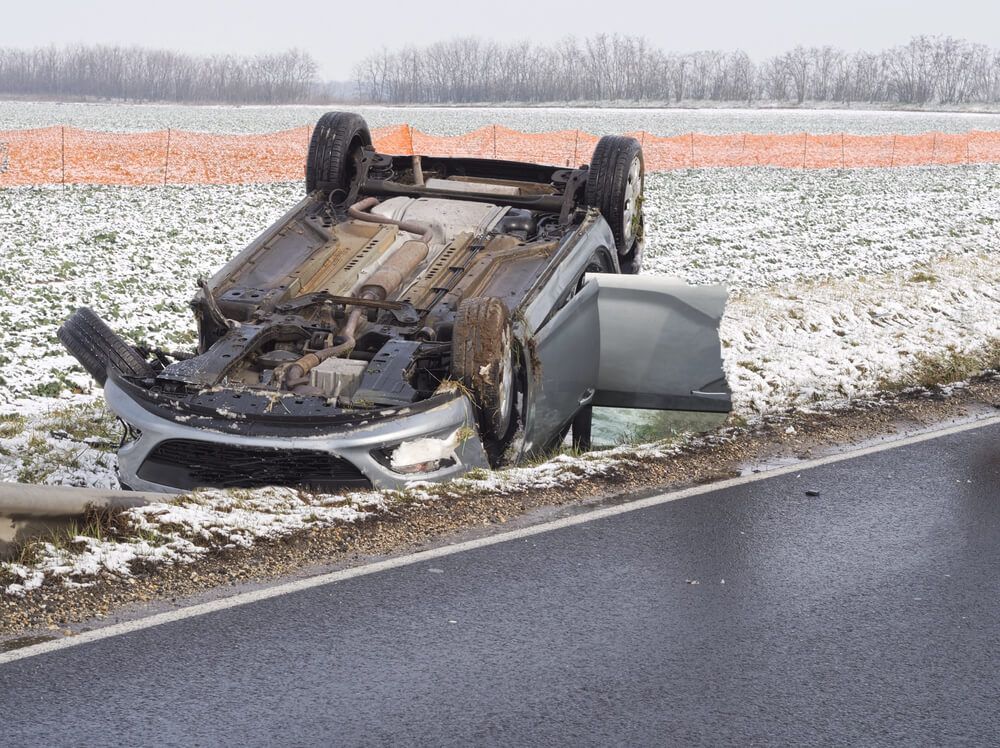
Rollover crashes don’t happen at random. They are usually the result of a mix of driver behavior, vehicle design and road conditions coming together at the wrong moment. Knowing the risks makes it easier to drive defensively and avoid situations where rollovers are more likely.
- Excessive Speed: Driving too fast, especially around curves, increases rollover risk.
- Sharp Steering Maneuvers: Sudden swerves can cause a vehicle to tip and roll.
- High Center of Gravity: Taller vehicles are more unstable and prone to rolling.
- Road Conditions: Slippery, uneven or poorly maintained roads make rollovers more likely.
- Collisions with Other Vehicles or Objects: Impact can cause a car to flip onto its side or roof.
- Tire Blowouts: A sudden loss of control from a blown tire can trigger a rollover.
Both driver actions and outside conditions matter. Understanding the most common causes can help drivers recognize risk factors and reduce the likelihood of being involved in one of these dangerous accidents.
What Kind of Injuries are Common in Rollover Accidents?
Because of the violent motion involved, rollover accidents tend to cause more severe injuries than many other types of crashes. Victims often experience multiple injuries at once, which can complicate treatment and prolong recovery. Some of the most common injuries include:
- Head Injuries: Concussions or traumatic brain injuries from hitting the roof, windows or even road
- Spinal Cord Injuries: Damage that may cause long-term mobility issues or paralysis
- Broken Bones: Arms, legs, ribs and collarbones are frequently fractured
- Internal Injuries: Damage to organs from blunt force or crushing impacts
- Lacerations and Bruises: Cuts from broken glass and bruises from being thrown inside the car
What makes rollover injuries particularly dangerous is their unpredictability. Car occupants can be struck from multiple angles during the roll, and in some cases, occupants are ejected from the vehicle entirely. These types of trauma often require extensive treatment, follow-up care and long recovery periods, which is why seeking immediate medical attention is so important.
Which Vehicles Are More Likely To Roll Over?
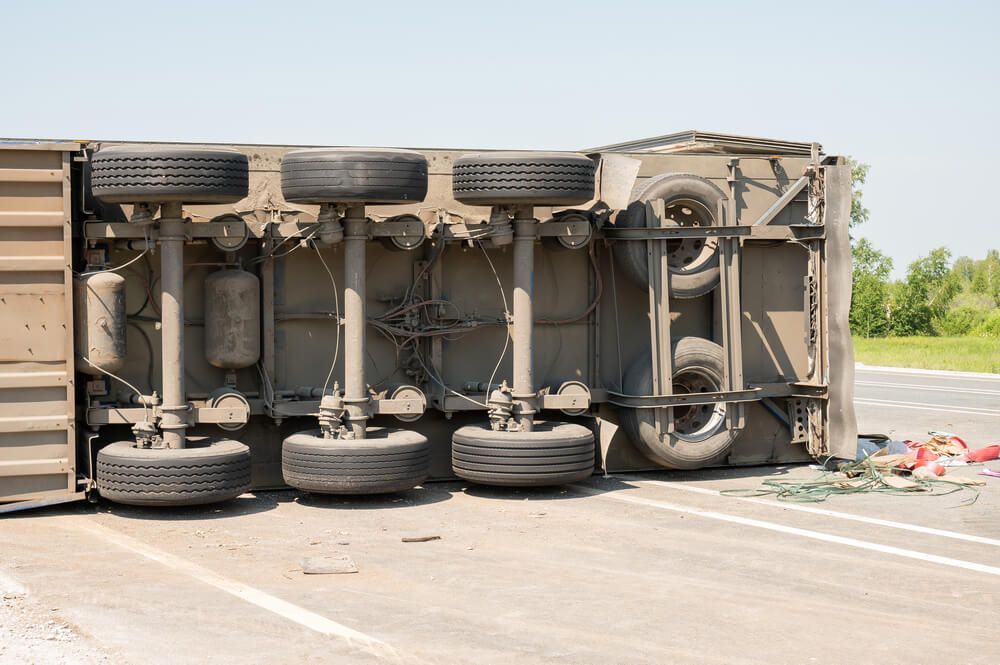
Not all vehicles face the same risk of rollover. Cars with a higher center of gravity, such as SUVs, vans and pickup trucks, are more likely to tip during sharp turns or collisions. A rollover involving a truck is especially dangerous because of the vehicle’s size and weight, which create greater force during the crash. Vehicles with a narrow track width (the distance between the left and right wheels) also have less stability and are more prone to tipping.
This doesn’t mean smaller cars are immune; any vehicle can roll under the right conditions. Still, drivers of taller, heavier vehicles should be especially cautious on curves, highway ramps and uneven roads.
Contact a Personal Injury Attorney After a Rollover Car Accident
If you’ve been in a rollover crash, contacting an attorney is one of the most important steps you can take because rollover cases are rarely straightforward. At Sargon Law Group, we have extensive experience helping clients after serious accidents and injuries. We understand how insurers operate and know how to push back when they try to undervalue claims. We’re here to protect your rights every step of the way.
If you or someone close to you has been involved in a rollover accident in Arizona, don’t face the challenges alone. Reach out today to learn how one of our car crash attorneys can help you pursue the compensation you deserve.
